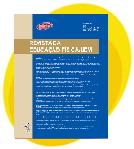The role of sport participation and body mass index in predicting motor competence of school-age children
Abstract
Purpose: Our goal was to investigate the association between sport participation (SP) and motor competence (MC), and to assess the mediation role of body mass index (BMI) on this association. Method: 707 children (332 boys, 375 girls) aged between 6- to 10 years participated in the study. MC was assessed using the BOT-2. Parents were asked about organized SP, and BMI was calculated based on the child’s height and weight. Results: Our findings showed that SP was associated with MC, and BMI was not an important factor in these relationships. However, a small mediation of BMI was found, but only for obese children. Conclusion: In summary, that sport participation plays a relevant role in the development of motor competence in school-age children, and that association is, in general, not mediated by weight status.
Downloads
Metrics
• Authors retain the copyright and full publishing rights without restrictions.

This work is licensed under a Creative Commons Attribution 4.0 International License.

















